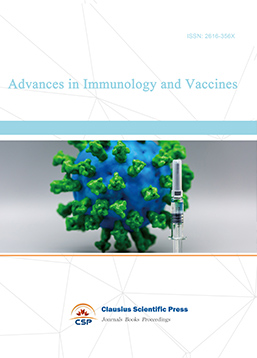A brief discussion on the research progress of traditional Chinese and western medicine in the treatment of post-stroke depression
DOI: 10.23977/phpm.2022.020207 | Downloads: 13 | Views: 1596
Author(s)
Dandan Guo 1, Ling Zhang 2
Affiliation(s)
1 Shaanxi University of Traditional Chinese Medicine, Xianyang, 712000, China
2 Xi'an Traditional Chinese Medicine Encephalopathy Hospital, Xi'an, 710032, China
Corresponding Author
Ling ZhangABSTRACT
The incidence of stroke disease in my country is extremely high, and post-stroke depression has also attracted widespread attention. Western medicine treatment is mainly based on antidepressant drugs, and traditional Chinese medicine treatment is mainly based on traditional Chinese medicine decoction combined with acupuncture and other characteristics of traditional Chinese medicine. The purpose of this article is to briefly discuss the recent years Come to the clinical treatment progress of western medicine and traditional Chinese medicine for post-stroke depression, and provide reference for its further treatment plan.
KEYWORDS
post-stroke depression; western medicine treatment; traditional Chinese medicine treatmentCITE THIS PAPER
Dandan Guo, Ling Zhang, A brief discussion on the research progress of traditional Chinese and western medicine in the treatment of post-stroke depression. MEDS Public Health and Preventive Medicine (2022) Vol. 2: 42-46. DOI: http://dx.doi.org/10.23977/phpm.2022.020207.
REFERENCES
[1] GBD 2013 mortality and causes of death collaborators. Global,regional, and national age-sex specific all-cause and cause specific morality for 240 courses of death, 1990-2013: systematic analysis for the Global Burden of Disease Study 2013 [J]. Lancet, 2015, 385(9963): 117-771.
[2] VILLA R F, FERRARI F, MORETTI A. Post-stroke depression: mechanisms and pharmacological treatment [J]. Pharmacol Ther, 2018, 184: 131-144. DOI: 10.1016/j.pharmthera. 2017.11.005.PSD
[3] Tang Yanping, Song Weixi, Zhong Meiqiong. Analysis of related factors and main syndromes of post-stroke depression in 176 cases [J]. Hunan Journal of Traditional Chinese Medicine, 2020,36(10):128-130.
[4] Wang Shaoshi, Zhou Xinyu, Zhu Chunyan. Chinese expert consensus on clinical practice of post-stroke depression [J]. Chinese Journal of Stroke, 2016, 11(8): 685-693.
[5] JIANG XG, LIN Y, LI YS. Correlative study on risk factors of depression among acute stroke patients [J]. Eur Rev Med Pharmacol Sci, 2014, 18(9): 1315.
[6] DUFFEY KAITLIN C, ORION S, WONG NOLAN L, et al. Evaporation kinetics of aqueous acetic acid droplets: effects of soluble organic aerosol components on the mechanism of water evaporation [J]. Phys Chem Chem Phys, 2013, 15(28): 11634-11639.
[7] MINEUR YS, MOSE TN, BLAKEMAN S, et al. Hippocampal α 7 nicotinic ACh receptors contribute to modulation of depression-like behaviour in C57BL/6J mice [J]. Br J Pharmacol, 2018, 175(11): 1903 -1914.
[8] RAHUL P, AZAR O, LUIJENDIJK MIENEKE CM, et al. Melanocortin 3 receptor signaling in midbrain dopamine neurons increases the motivation for food reward [J]. Neuropsychopharmacology, 2016, 41 (9): 2241-2251.
[9] MENG G, MAX, LI L, et al. Predictors of early-onset post-ischemic stroke dep.
[10] Fu Xiaoyan, Chen Haohao, Ding Mingxing, et al. Effects of overexpression of brain-derived neurotrophic factor in rat hippocampus on post-stroke depression behavior [J]. Anatomy, 2015, 38(6): 689-693.
[11] Fang Liqun, Wang Yonggui, Zhang Zheng, et al. Effects of fluoxetine on BDNF mRNA expression in hippocampus of post-stroke depression model rats [J]. Journal of Harbin Medical University, 2011, 45(5).
[12] Kang Xiao, Sui Rubo, Zhang Lei, et al. The role of the cerebellum-hypothalamic pathway in the pathogenesis of post-stroke depression [J]. Journal of China Medical University, 2015, 44(5): 389-393, 399.
[13] Li Xiaohe. Correlation between brain-derived neurotrophic factor and inflammatory factors in patients with post-stroke depression [J]. Laboratory Medicine and Clinical, 2014, 11(10): 1410-1411.
[14] Wannagat W, Zielasek J, Gaebel W. Therapy of poststroke depression-a systematic review[J]. Psychiatrie, 2013, 10: 108-129. 47 Mead GE, Hsieh CF, Lee R, et al. Selective serotonin reuptake inhibitors for stroke recovery: a systematic review and meta-analysis[J]. Stroke, 2013, 44: 844- 850.
[15] Shen Luyao, Zhu Dongya. Research progress on anxiety and depression after stroke [J]. Journal of Nanjing Medical University (Natural Science Edition), 2020, 40(02): 287-292.
[16] Sun Caili. Advances in TCM treatment of post-stroke depression [J]. Clinical Journal of Traditional Chinese Medicine, 2012, 24 (6): 567-569.
[17] Wang Dou, Li Tao, Yan Yongmei. Research progress of traditional Chinese medicine in the treatment of post-stroke depression [J]. Liaoning Journal of Traditional Chinese Medicine, 2021, 48(10): 212-216. DOI: 10.13192/j.issn.1000-1719.2021. 10.055.
[18] Li Qingli, Li Jing. Clinical research on self-made Jieyu Huoxue decoction in the treatment of post-stroke depression [J]. Clinical Journal of Traditional Chinese Medicine, 2016, 28(10): 1464-1466. DOI: 10.16448/j.cjtcm .2016.0515.
[19] Luo Zhiqiang, Yu Guohua. Clinical observation of Tongqiao Xiaoyu Decoction in the treatment of post-stroke depression [J]. Traditional Chinese Medicine Pharmacology and Clinical, 2016, 32(02): 211-213. DOI: 10.13412/j.cnki. zyyl.2016.02 .061.
| Downloads: | 5044 |
|---|---|
| Visits: | 313903 |
Sponsors, Associates, and Links
-
MEDS Clinical Medicine

-
Journal of Neurobiology and Genetics

-
Medical Imaging and Nuclear Medicine

-
Bacterial Genetics and Ecology

-
Transactions on Cancer

-
Journal of Biophysics and Ecology

-
Journal of Animal Science and Veterinary

-
Academic Journal of Biochemistry and Molecular Biology

-
Transactions on Cell and Developmental Biology

-
Rehabilitation Engineering & Assistive Technology

-
Orthopaedics and Sports Medicine

-
Hematology and Stem Cell

-
Journal of Intelligent Informatics and Biomedical Engineering

-
MEDS Basic Medicine

-
MEDS Stomatology

-
MEDS Chinese Medicine

-
Journal of Enzyme Engineering

-
Advances in Industrial Pharmacy and Pharmaceutical Sciences

-
Bacteriology and Microbiology

-
Advances in Physiology and Pathophysiology

-
Journal of Vision and Ophthalmology

-
Frontiers of Obstetrics and Gynecology

-
Digestive Disease and Diabetes

-
Advances in Immunology and Vaccines

-
Nanomedicine and Drug Delivery

-
Cardiology and Vascular System

-
Pediatrics and Child Health

-
Journal of Reproductive Medicine and Contraception

-
Journal of Respiratory and Lung Disease

-
Journal of Bioinformatics and Biomedicine


 Download as PDF
Download as PDF